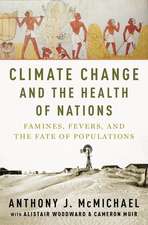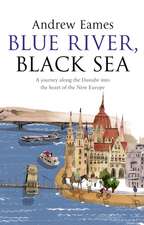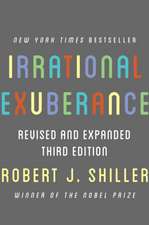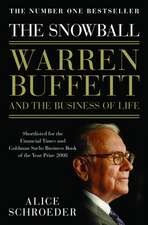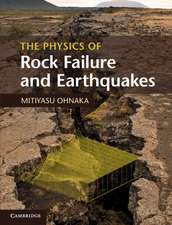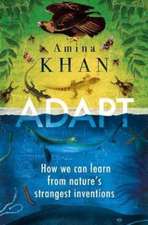Oxygen: The molecule that made the world: Oxford Landmark Science
Autor Nick Laneen Limba Engleză Paperback – 28 apr 2016
Oxygen has had extraordinary effects on life. Three hundred million years ago, in Carboniferous times, dragonflies grew as big as seagulls, with wingspans ofnearly a metre. Researchers claim they could have flown only if the air had contained more oxygen than today -probably as much as 35 per cent. Giant spiders, tree-ferns, marine rock formations and fossil charcoalsall tell the same story. High oxygen levels may also explain the global firestorm that contributed to thedemise of the dinosaurs after the asteroid impact. The strange and profound effects that oxygen has had on the evolution of life pose a riddle, which this booksets out to answer. Oxygen is a toxic gas. Divers breathing pure oxygen at depth suffer from convulsionsand lung injury. Fruit flies raised at twice normal atmospheric levels of oxygen live half as long as theirsiblings. Reactive forms of oxygen, known as free radicals, are thought to cause ageing in people. Yet ifatmospheric oxygen reached 35 per cent in the Carboniferous, why did it promote exuberant growth,instead of rapid ageing and death? Oxygen takes the reader on an enthralling journey, as gripping as a thriller, as it unravels the unexpectedways in which oxygen spurred the evolution of life and death. The book explains far more than the size ofancient insects: it shows how oxygen underpins the origin of biological complexity, the birth of photosynthesis, the sudden evolution of animals, the need for two sexes, the accelerated ageing of cloned animals like Dolly the sheep, and the surprisingly long lives of bats and birds. Drawing on this grand evolutionary canvas, Oxygen offers fresh perspectives on our own lives and deaths,explaining modern killer diseases, why we age, and what we can do about it. Advancing revelatory new ideas,following chains of evidence, the book ranges through many disciplines, from environmental sciences tomolecular medicine. The result is a captivating vision of contemporary science and a humane synthesis of ourplace in nature. This remarkable book might just redefine the way we think about the world.Oxford Landmark Science books are 'must-read' classics of modern science writing which have crystallized big ideas, and shaped the way we think.
Din seria Oxford Landmark Science
- 16%
 Preț: 55.87 lei
Preț: 55.87 lei - 13%
 Preț: 80.58 lei
Preț: 80.58 lei - 13%
 Preț: 86.37 lei
Preț: 86.37 lei - 14%
 Preț: 67.23 lei
Preț: 67.23 lei - 18%
 Preț: 60.99 lei
Preț: 60.99 lei - 18%
 Preț: 54.08 lei
Preț: 54.08 lei - 14%
 Preț: 73.45 lei
Preț: 73.45 lei - 16%
 Preț: 63.64 lei
Preț: 63.64 lei -
 Preț: 98.09 lei
Preț: 98.09 lei - 16%
 Preț: 64.30 lei
Preț: 64.30 lei - 13%
 Preț: 74.33 lei
Preț: 74.33 lei - 15%
 Preț: 71.24 lei
Preț: 71.24 lei - 16%
 Preț: 64.21 lei
Preț: 64.21 lei - 20%
 Preț: 64.50 lei
Preț: 64.50 lei - 14%
 Preț: 72.57 lei
Preț: 72.57 lei -
 Preț: 74.77 lei
Preț: 74.77 lei - 17%
 Preț: 54.22 lei
Preț: 54.22 lei - 17%
 Preț: 63.23 lei
Preț: 63.23 lei
Preț: 64.55 lei
Preț vechi: 76.57 lei
-16% Nou
12.35€ • 12.93$ • 10.28£
Carte disponibilă
Livrare economică 26 februarie-04 martie
Livrare express 21-27 februarie pentru 34.15 lei
Specificații
ISBN-10: 0198784937
Pagini: 400
Ilustrații: 13 black and white illustrations
Dimensiuni: 131 x 195 x 23 mm
Greutate: 0.27 kg
Editura: OUP OXFORD
Colecția OUP Oxford
Seria Oxford Landmark Science
Locul publicării:Oxford, United Kingdom
Recenzii
'. . . a breathtaking, broad vision of the role of a single gas in our life, from the origin of organisms, through the emergence of creatures, and to their deaths . . . packed full of interesting life-and-death stories...A wonderful read.'
'. . . one of the most thought-provoking books I have ever read.'
Nick Lane's chapters are dispatches from the frontiers of research into Earth and life history, but they contain nothing that will lose the patient reader and much that will reward.
. . . Nick Lane marshals an impressive array of evidence - [an] ambitious narrative . . . This is science writing at its best.
Notă biografică
Dr Nick Lane is a British biochemist and writer. He was awarded the first Provost's Venture Research Prize in the Department of Genetics, Evolution, and Environment at University College London, where he is now a Reader in Evolutionary Biochemistry. Dr Lane's research deals with evolutionary biochemistry and bioenergetics, focusing on the origin of life and the evolution of complex cells. Dr Lane was a founding member of the UCL Consortium for Mitochondrial Research,and is leading the UCL Research Frontiers Origins of Life programme. He was awarded the 2011 BMC Research Award for Genetics, Genomics, Bioinformatics and Evolution, and the 2015 Biochemical Society Award for his sustained and diverse contribution to the molecular life sciences and the publicunderstanding of science. His books include Oxygen: The Molecule that Made the World (OUP, 2002), and Power, Sex, Suicide: Mitochondria and the Meaning of Life (OUP, 2005).


